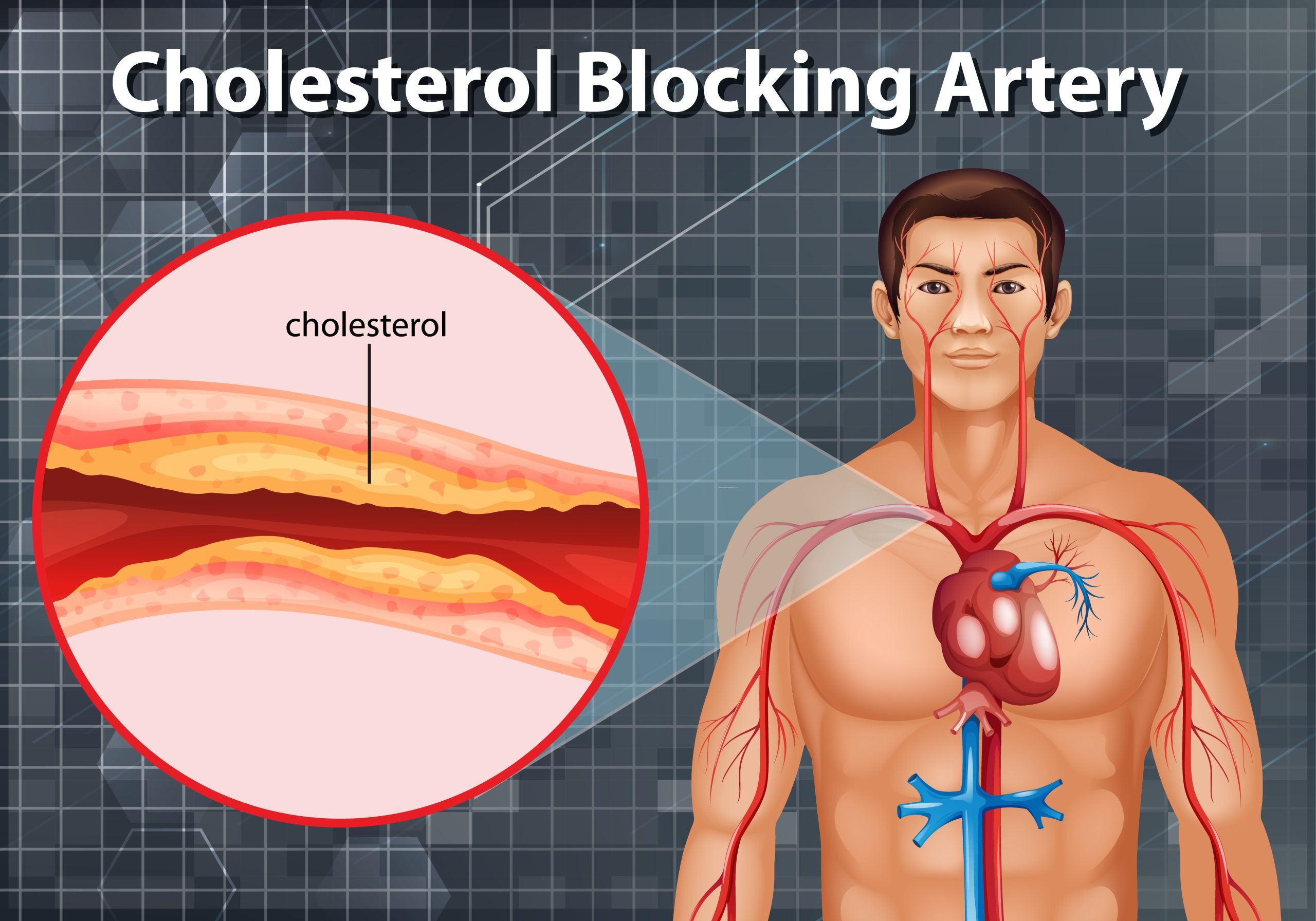
This post may contain affiliate content from which we earn a small commission at no additional cost to you. Read our full disclosure.
Ever notice how stress can sometimes feel like it’s weighing you down? Well, turns out, there’s a real link between stress and weight gain. It’s like they’re best buds but in a not-so-great way. Stress can mess with your body in all sorts of sneaky ways, and one of them is messing with your weight.
So, if you’ve been feeling the pressure and noticing your pants getting a bit snugger, don’t worry, you’re not alone. Let’s dive into the fascinating connection between stress and weight gain and see what we can uncover!
Understanding Cortisol

At the heart of the stress-weight gain connection lies cortisol, often dubbed the “stress hormone.” Produced by the adrenal glands, cortisol plays a pivotal role in our body’s fight-or-flight response.
When faced with a stressful situation, cortisol floods our system, priming us for action. However, prolonged stress can lead to chronic elevation of cortisol levels, triggering a cascade of physiological changes that influence our weight.
If you want to lose weight, you can try out Beyond Body. You may ask, “What is Beyond Body?” For that, you can read our Beyond Body review. Check the code below to get up to 60% off.


Beyond Body - 67% Off Discount Code
The Vicious Cycle: Stress, Cravings, and Overeating
One of the most notable effects of elevated cortisol levels is its impact on appetite regulation. Studies have shown that chronic stress can disrupt the delicate balance of hormones responsible for signaling hunger and satiety, leading to increased cravings, particularly for high-fat, sugary foods.
This phenomenon, often referred to as “stress eating,” can create a vicious cycle wherein stress triggers overeating, further exacerbating weight gain and compounding stress levels.
How Stress Alters Fat Distribution
Beyond influencing our eating behaviors, cortisol also plays a role in fat distribution within the body. Research suggests that chronic stress can promote the accumulation of visceral fat—the deep abdominal fat that surrounds vital organs.
Unlike subcutaneous fat, which lies just beneath the skin, visceral fat is metabolically active and has been linked to a host of health issues, including insulin resistance, type 2 diabetes, and cardiovascular disease. Thus, stress-induced alterations in fat distribution can have profound implications for overall health and well-being.
A Silent Culprit in the Stress-Weight Gain Cycle

In the modern age, where screens glow well into the night and sleep takes a backseat to productivity, sleep deprivation has emerged as a silent accomplice in the stress-weight gain cycle. Chronic stress can disrupt sleep patterns, leading to decreased sleep duration and quality.
In turn, inadequate sleep can further exacerbate stress levels and disrupt hormonal balance, contributing to weight gain. The intricate interplay between stress, sleep, and weight underscores the importance of prioritizing restorative sleep as a cornerstone of health and weight management.
The Role of Psychological Factors
While the physiological mechanisms linking stress and weight gain are well-documented, the role of psychological factors should not be overlooked. For many individuals, stress serves as a trigger for emotional eating—a coping mechanism employed to soothe negative emotions and alleviate stress.
Moreover, stress can undermine motivation and self-regulatory behaviors, making it more challenging to adhere to healthy lifestyle habits such as regular exercise and mindful eating.
By addressing the underlying psychological drivers of stress-induced weight gain, individuals can cultivate resilience and adopt more adaptive coping strategies.
Strategies for Stress Management and Weight Control
Despite the intricate interplay between stress and weight gain, breaking free from this cycle is not an insurmountable task. By implementing effective stress management strategies, individuals can mitigate the physiological and psychological impacts of stress while fostering a healthier relationship with food and weight.
Mindfulness practices, such as meditation and deep breathing exercises, have been shown to reduce stress levels and promote self-awareness, enabling individuals to respond to stressors with greater equanimity.
Additionally, engaging in regular physical activity can help buffer the effects of stress on the body, enhancing mood, and supporting weight management efforts.
Embracing a Balanced Lifestyle Approach

Ultimately, addressing the connection between stress and weight gain requires a holistic approach that encompasses not only physical health but also emotional well-being and social support.
By nurturing healthy relationships, prioritizing self-care, and fostering resilience in the face of adversity, individuals can cultivate a balanced lifestyle that promotes both mental and physical flourishing.
By acknowledging the complex interplay between stress and weight gain and adopting proactive strategies for managing stress and supporting weight control, individuals can reclaim agency over their health and well-being, embarking on a journey toward greater vitality and vitality.
The Gut-Brain Axis
Recent research has unveiled the intricate communication network known as the gut-brain axis, which highlights the bidirectional relationship between the gastrointestinal tract and the central nervous system.
Emerging evidence suggests that stress can disrupt this delicate balance, altering gut microbiota composition and compromising intestinal barrier function. These disruptions can contribute to inflammation and metabolic dysfunction, further exacerbating weight gain.
By nurturing gut health through dietary modifications, probiotics, and stress-reduction techniques, individuals can support a harmonious gut-brain axis and promote overall well-being.
Social Support

Amidst the hustle and bustle of modern life, the importance of social support cannot be overstated. Strong social connections have been shown to buffer the effects of stress, providing emotional reassurance and practical assistance during challenging times.
Conversely, social isolation and loneliness can amplify the physiological stress response, increasing the risk of weight gain and associated health issues.
By cultivating meaningful relationships and fostering a supportive social network, individuals can enhance resilience and mitigate the impact of stress on both mental and physical health.
Mindful Eating
In a culture dominated by convenience foods and hectic schedules, mindful eating offers a powerful antidote to stress-induced overeating. By bringing awareness to the present moment and savoring each bite, individuals can cultivate a deeper connection with their food and body.
Mindful eating practices encourage attentive eating, allowing individuals to tune into hunger and satiety cues, and make informed choices about when, what, and how much to eat.
By approaching meals with curiosity and non-judgmental awareness, individuals can foster a more balanced relationship with food, supporting both weight management and overall well-being.
If you wanna know what to eat during weight loss you can check out our article “Tips for Eating Out While Losing Weight”.
Beyond Body – Your Ultimate Weight Loss Guide
Beyond Body stands out due to its personalized approach to nutrition and fitness, tailoring meal and exercise plans to your preferences and needs. The 28-day meal plan not only promotes healthy eating but also makes it enjoyable, ensuring you savor delicious meals while prioritizing your well-being.
Beyond Body goes beyond mere weight loss, acting as a supportive companion on your journey to a healthier and happier life.
If you’re interested, check out our comprehensive Beyond Body review. Take the brief quiz to embark on your personalized health journey and unlock exclusive savings of up to 60% off using the code provided below:


Beyond Body - 67% Off Discount Code
Wrap-Up
In sum, it’s clear that stress and weight gain often go hand in hand. When stress hits, our bodies can react by craving comfort foods and storing fat.
However understanding this link empowers us to make healthier choices and find effective ways to manage stress, which can ultimately lead to better overall well-being. By prioritizing stress management alongside other healthy habits, we can strive for a balanced and happier life.
FAQs on the Connection Between Stress and Weight Gain
How does stress cause weight gain?
Stress can lead to weight gain through various pathways. When stressed, the body releases cortisol, a hormone that can increase appetite and lead to overeating. Additionally, stress may result in poor dietary choices, such as reaching for comfort foods high in sugar and fat.
Moreover, stress can disrupt sleep patterns, which in turn affects metabolism and contributes to weight gain.
How can I lose weight due to stress?
To combat weight gain caused by stress, focusing on stress management techniques is essential. Engaging in regular exercise not only helps to burn calories but also reduces stress levels.
Incorporating mindfulness practices like meditation or yoga can help to alleviate stress and promote healthier eating habits. Seeking support from friends, family, or a therapist can also provide coping strategies for managing stress-related weight gain.
What type of body fat is stress?
Stress-induced body fat tends to accumulate around the abdomen, leading to what is commonly referred to as visceral fat. This type of fat is considered more harmful than subcutaneous fat, which is found just beneath the skin.
Visceral fat is associated with an increased risk of various health issues, including heart disease, diabetes, and metabolic syndrome. Managing stress levels through lifestyle changes and relaxation techniques can help reduce the accumulation of visceral fat.
- Online Vs In-Person Certification Courses: Pros & Cons - April 23, 2024
- Tips for Acing Your Fitness Certification Exam - April 21, 2024
- Balancing Work-Life as a Fitness Trainer: Complete Guide - April 19, 2024
Disclosure: In the spirit of full disclosure, DIYactive.com may be compensated in exchange for featured placement of certain reviews or links on this website. View our full disclosure.



